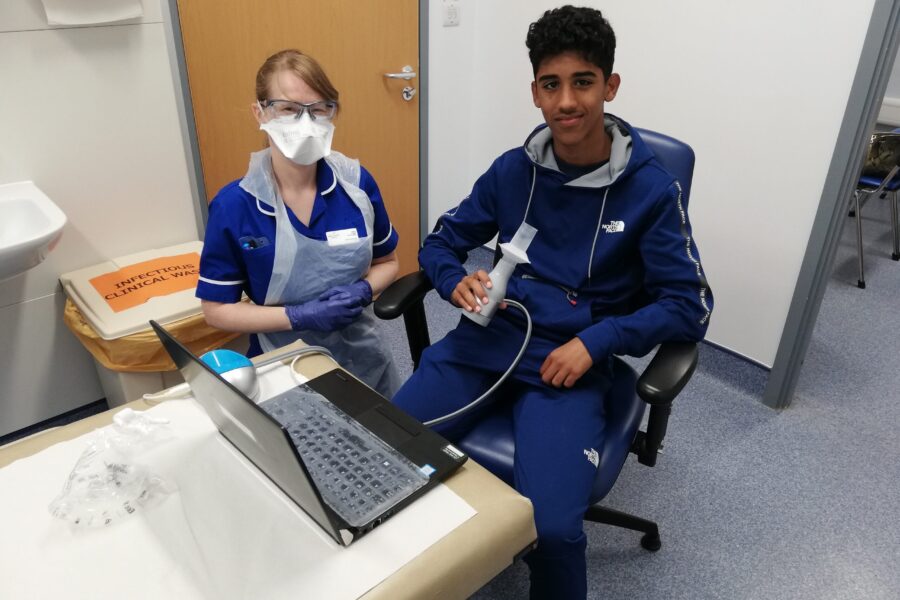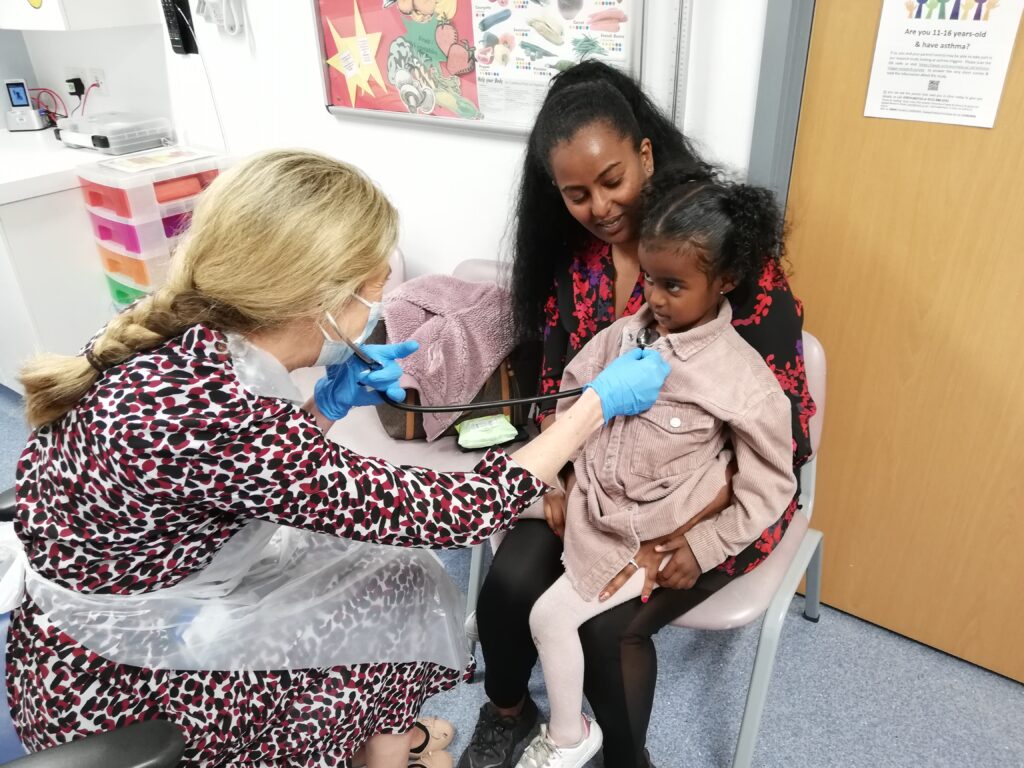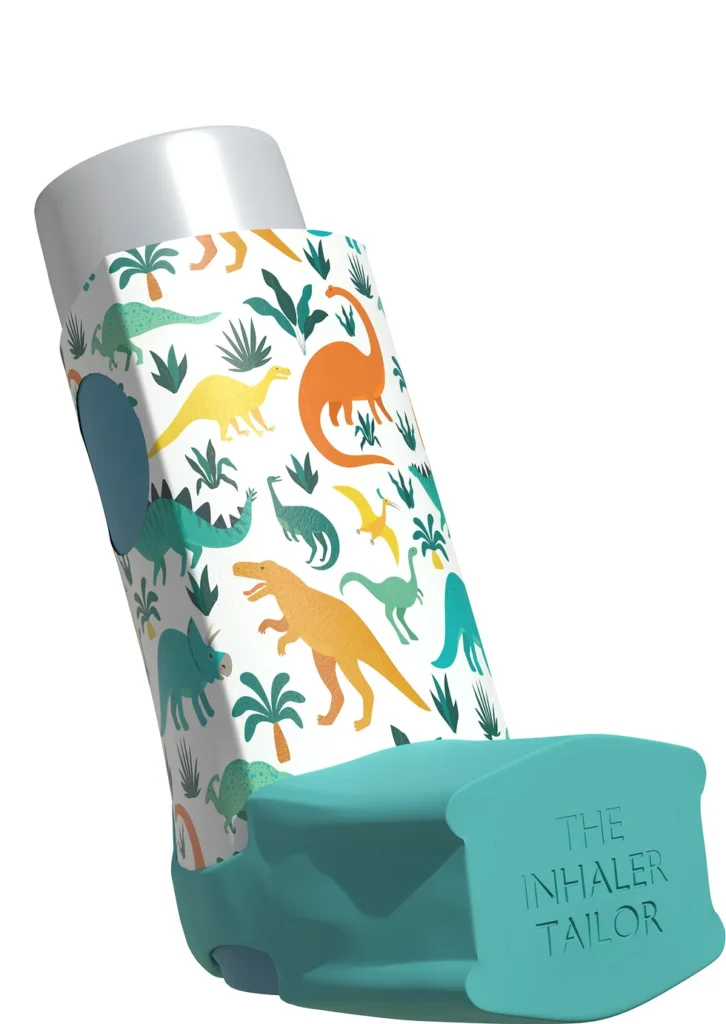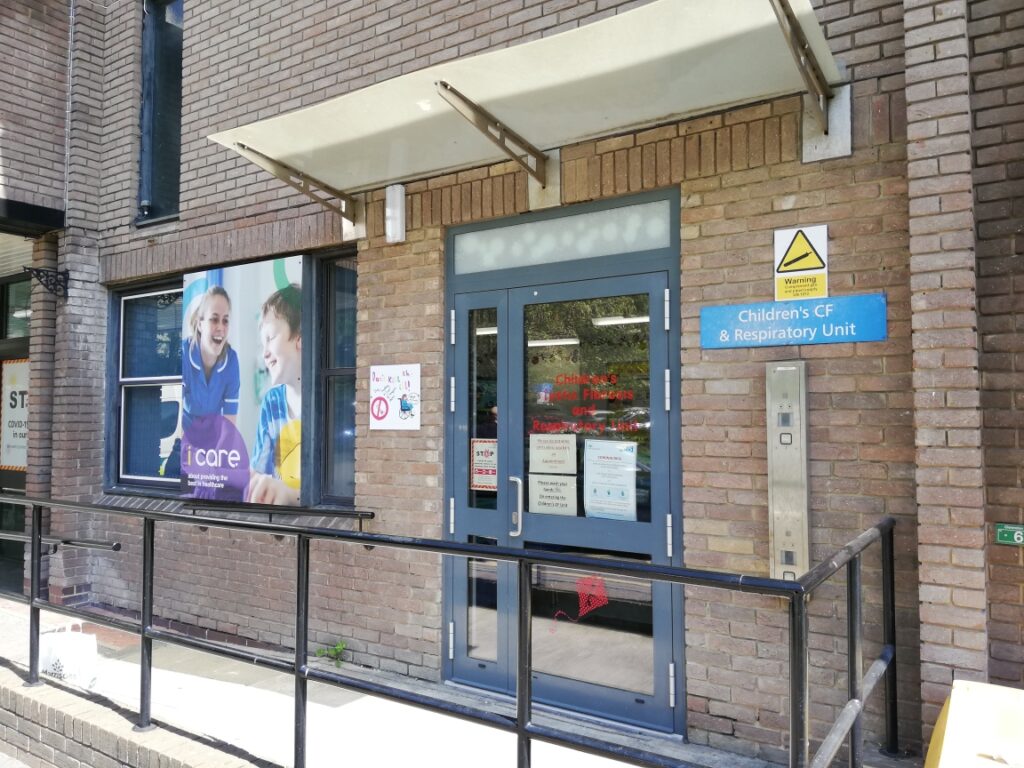
We see patients in a multidisciplinary clinic. We also look after patients with difficult asthma admitted to the Children’s ward and provide support for the General Paediatric Team looking after children with asthma.
You can be referred to the service by your GP, paediatrician or you may be referred after an admission to hospital.
What we do
Clinical Visits
At each clinic appointment children will have their height and weight measured. All children will have their medication dose and inhaler technique checked (how they take the inhaler). It is therefore very important to bring all inhalers and spacer devices to every clinic appointment. Children over 5 years of age will have their lung function measured on a spirometer machine and may also be asked to have an exhaled nitric oxide test.

Children may also need to have further tests such as a chest x-ray, skin prick testing or blood tests. If these, or any additional, investigations are necessary they will be explained to you and your child. At each clinic visit your child will be seen by one of the Doctors and in addition may be seen by one of our Asthma Nurse Specialists and our Clinical Psychologist either separately or in a joint consultation with the Doctor.
We can provide support and education both within the home and school setting.
We provide a comprehensive service based on high standards of care guided by national and local guidelines.
The Inhaler Tailor – Competition Time!

Do you know someone who uses an inhaler? Its time to get creative! For the next three weeks we are running a very exciting competition with your chance to design your very own customised inhaler cover. The Inhaler Tailor will judge all entries and select one lucky winner who will have their design turned into a customised inhaler cover.
To enter the competition, simply download the design template, complete and email to: leedsth-tr.asthma48@nhs.net
Entries must be from children 0-16 years, living within a Leeds postcode or known to Leeds Children’s Hospital. The competition closes Monday 30 September.
Download the template here (181kB pdf)
How to find us

The Asthma Clinic is situated within the Children’s Cystic Fibrosis and Respiratory Unit which is on A floor Clarendon Wing. The entrance to the Children’s Cystic Fibrosis and Respiratory Unit is situated to the right hand side of the main Clarendon Wing entrance.
Inpatient care is provided on Ward L38 but we may well have patients on Wards L30, L40 and the Children’s Assessment and Treatment (CAT) Unit.
Contact us
If you are unable to attend your appointment please contact us and you will be able to rebook another appointment. By cancelling your appointment we will be able to offer the appointment to another patient. Thank you.
Other Information
Research and training
Leeds Children’s Hospital is part of Leeds Teaching Hospitals so you may meet medical students and student nurses during your visit to the Asthma clinic.
The Respiratory Team work closely with the Leeds Children’s Hospital Clinical Research Team and occasionally you and your child may be asked if you would like to take part in a research study. This is completely voluntary and will not affect your care if you would prefer not to.
Inpatients
If needed, we will review your child when they are admitted with a wheeze or asthma before discharge home. We will always take steps to review your child’s asthma management and provide a written take-home plan.
Useful websites
Asthma UK Allergy UK NICE UKUseful resources
Spotting symptoms of Asthma or wheeze
Spotting asthma symptoms in your child | Asthma UK
If you’re worried your child might have asthma, but you’re not sure about this, talk to your GP about it in this video. It shows the things to look out for, there are four main symptoms of asthma coughing, wheezing, chest tightness and breathlessness. Children get coughs all the time, so how do you tell if it could be asthma. When your child gets a cough, a good clue children with asthma cough at nighttime, in the early morning or after exercise. Another sign is if your child has had a cough for a long time, and it just won’t go away.
A wheeze is a whistling sound in your child’s chest, usually when they breathe out. Every child’s wheeze is different, and they’re often hard to hear, even your nurse or doctor might need to use a stethoscope. So if you can’t hear, but your child’s has other symptoms, I’d still recommend talking to your doctor about asthma. Another sign of asthma is chest tightness, this one’s tricky to spot in my experience. Children with chest tightness often rub their tummy or their chest. If they can talk, they might say things like I have a tummy ache or my chest hurts.
The final symptom to look out for is breathlessness.
It’s normal for children to get a bit breathless when they’re running around and playing, so how do you tell if it’s something to worry about. Firstly, you might notice that they’re breathing fast or that they’re using lots of their body when they breathe. For example shrugging their shoulders up and down when they’re playing, you might notice they get more out of breath or stay out of breath for longer than other children. They might get breathless even when they’re not exercising, and finally they might start avoiding exercise because they don’t like the symptoms.
As a parent it is easy to feel that you’re worrying too much or that you’ll be bothering your doctor, but I would always want to know if one of my patients was getting these symptoms. The right treatment could help settle your child’s cough wheeze tight chest or breathlessness, so it really is worth getting them seen.
if you have more questions about asthma you can always watch at me or one of my colleagues ask me okay.
- How to use an inhaler
- The link between Asthma and Allergy
- Information about house dust mites
- Information about pet allergy
- Information about Hayfever
- Information about air quality
- Help to stop smoking based in Leeds